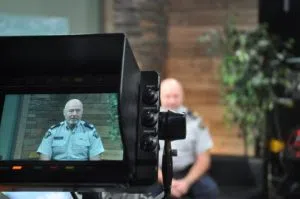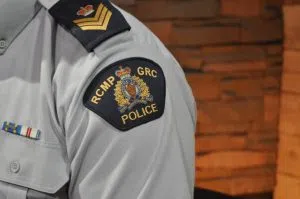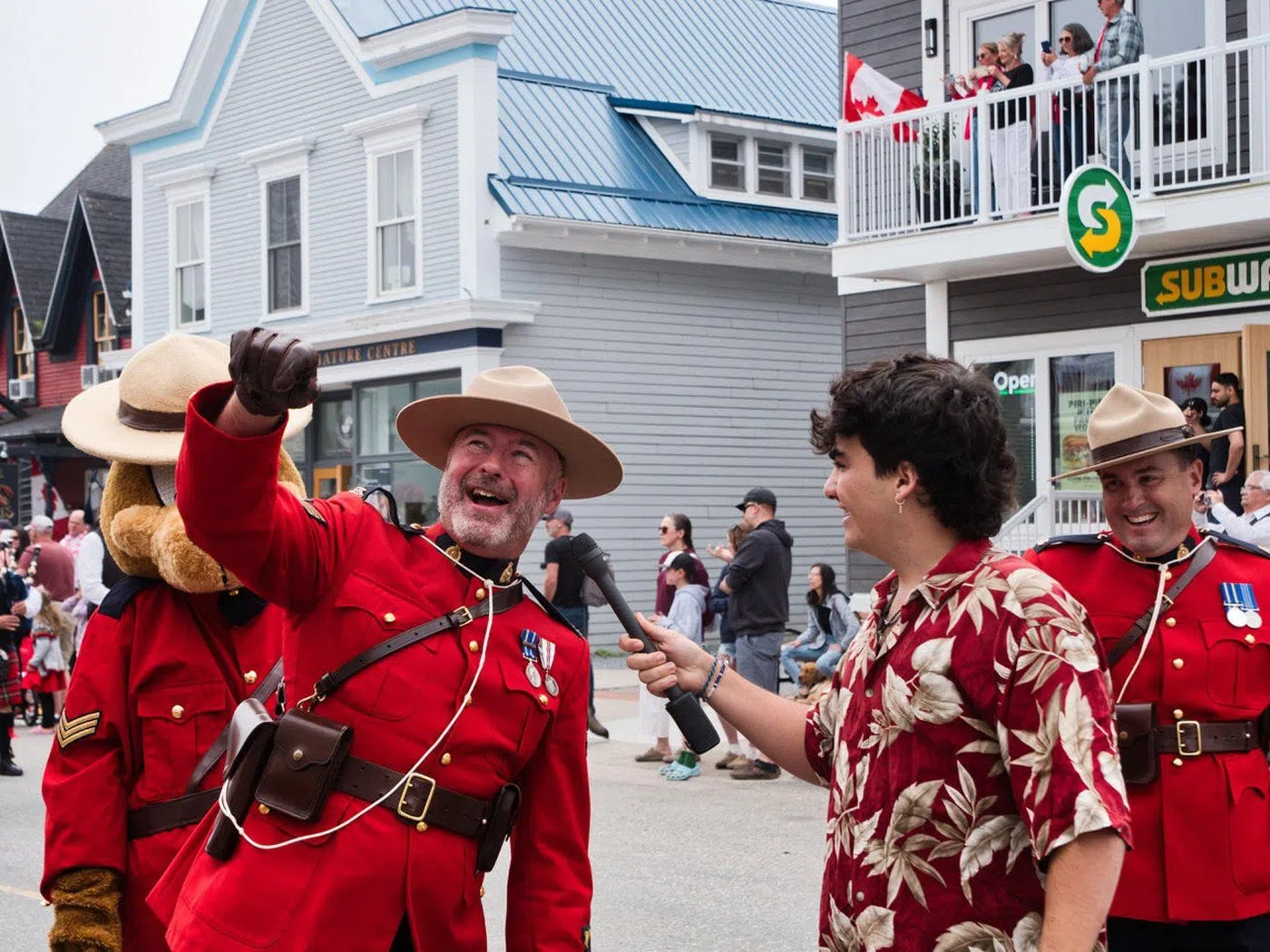RCMP Sgt. Scott MacKenzie knew in high school he wanted to be a member of Canada’s police force and now 32 years later – he’s ready to hang up his iconic “red serge” for civilian life.
He was born in Nova Scotia and chose to do a Bachelor of Arts at St. Francis Xavier University, before being sent to Montreal for language training by the RCMP. He would spend an additional six months of training in Regina, Sask.
He would, in the end, be posted to Charlotte County – where he and his family would settle roots.
For him, a lot has changed in those three decades.
“There have been a lot of changes, especially the timeline that I’ve been in the RCMP from 1993 to the present day,” he said. “I started with a .38 revolver and, within a year, we transitioned to the 9mm pistol.”

He said being able to help people in their time of need has been his greatest accomplishment. Image: Nathalie Sturgeon/The Courier
He was also there for the deployment of less-lethal weapons like a conducted energy weapon – more commonly known as a taser.
“I’ve seen the introduction of the patrol car carbine,” he said. “Body-worn cameras. The 40mm less lethal [weapon]. There has been a huge change.”
He said it’s not just the equipment changing over time, but the technology used and policing, as well.
“When I started, we had paper files,” he said. “Within a year of me being in Saint Andrews, [there was the] introduction of electronic filing systems. When I first started, we didn’t even have email.”
He recalls getting his first computer that had internet access as well as the first phones, described as bag phones that used a vehicle’s cigarette lighter to be powered. MacKenzie said he and his family recognized early on that they wanted to stay in Charlotte County and make it their home.
“It was very important to me to be connected to the community, to not only be Scott the Mountie, but Scott the neighbour, Scott the coach, Scott the friend.”
He said it can be a difficult balance, but it is important to remember police officers are also members of the community.
“It was important to be part of the community and see me outside wearing the uniform,” he said.
The issues for rural policing
MacKenzie said the issue facing rural policing is mainly distance.
“Even in our small corner of the world in New Brunswick, distance is our struggle,” he said. “Just because we can’t be everywhere at once.”
RCMP have actively recruited new members and at least 51 have been promised to the province through funding provided by the previous Progressive Conservative government.
His pride for Canada Day and youth
He said his favourite day of the year is July 1 – Canada’s birthday. He’s marched in every parade since moving here, making 2025 his last.
“That has been a true honour to represent the RCMP and Canada at the huge event that it is,” he said. “I remember my first year, fresh out of Depot, you still know how to march, your serge still fits … the pride in the uniform, the pride in what we do, just shows you [people] appreciate what we do.”
MacKenzie said it’s important to remember that police officers are human and don’t always get it right.

The RCMP is the country’s top police force and operates mainly in rural areas, with some exceptions. Image: Nathalie Sturgeon/The Courier
“But we strive to get it right,” he said. “There is a very strong feeling of pride when you walk down Water Street and there are thousands of people clapping for you, the veterans and the cadets as you walk down.”
This and his work with youth in the community, like coaching hockey, have been important to him.
At first, he said, he remembers the kids at the local high school being hesitant about his presence there, as he wandered the halls. Over time, that hesitancy disappeared.
“Having the opportunity for them to meet a police officer, knowing a police officer, on a personal level, to realize we’re humans too,” he said.
MacKenzie said to sit and chat with kids about the latest Star Wars movie – admitting he’s a bit of a sci-fi nerd — helps establish a connection.
“Rather than see just that head and shoulders drive by in the police car, to get to know us on a personal level, I think, is huge.”
He believes that if individuals know them as a person, it builds trust, making it easier if there is ever a professional reason for them to interact.
What’s next
MacKenzie said he is involved in ground search and rescue in Charlotte County and will continue as a volunteer following his retirement. He would like to spend more time volunteering overall, he explained.
“I’ve got a few ideas,” he said.
But he may not be too far away from the uniform, hinting he may join the reserve program to assist and maintain a relationship with the local detachments.
MacKenzie said being able to help people in their greatest time of need is what has been his proudest accomplishment.
“I think that’s why most people … anyone, gets involved in policing,” he said.
During his final march down Water Street — leading, as always, the Canada Day parade — he was embraced by one of the parade watchers, encompassing the true gratitude to heroes in our community.




